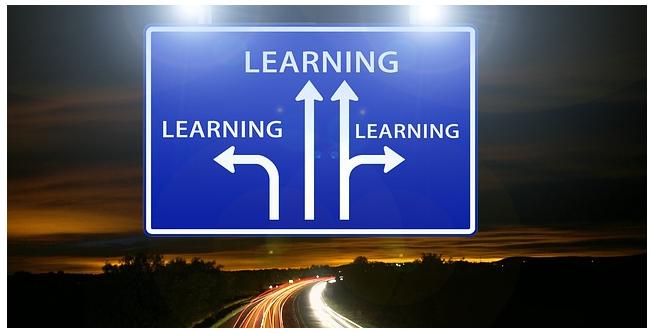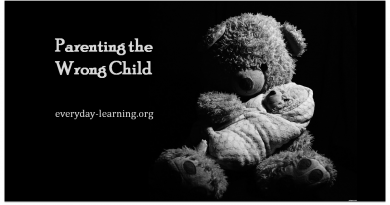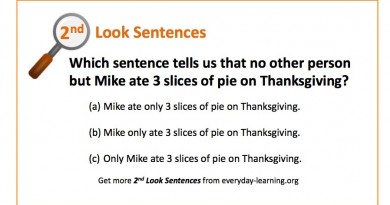Homeschooling: It’s Got To Be Better Than This

I never set out to homeschool my children. In fact, I was one of those moms, so lego-ed out from two boys close in age, I couldn’t wait for kindergarten to start. That is, of course, until a month before school started.
During the summer when my oldest turned five, I began to doubt the propriety of a public school education. Long forgotten memories of dull days and cruel teasing from my own elementary education returned to me.
Yet, no one believed that I seriously entertained the thought of homeschooling. I had ambitions. I wanted to return to a career that had never really gotten off the ground before I chose to be a full-time mom in my young 20s.
Before August ended, I put my first born on the school bus and bravely waved goodbye. In the end, I decided I had to cut the apron strings. So, off to school he went. I immediately knew I made a mistake as the bus rounded the corner and I promptly broke into tears. I just couldn’t quite articulate the gaffe, yet.
Relearning How We Learn
Me: What did you do in school today, honey?
Him: We counted to twenty.
My son attended one of the county’s best magnet schools. Administrators touted the full day kindergarten program as comparable to local private schools. Yet, for six weeks the after-school conversations I had with my son remained the same. Learning was happening in the classroom. It just didn’t have to do with academics.
Back when my son was in kindergarten, researchers found that teachers earmarked about 55% of their class time for instruction. Even with that, children engaged in learning tasks for only 25% of their school day. Today, with all the test craziness going on in schools, actual learning time is even less.
So, what do kids learn in kindergarten?
Lining up in a straight line. Walking silently in the hallways. Sitting with your hands in your lap until everyone else has stopped talking. Eating lunch in 15 minutes so you can have 15 minutes of run around time on the playground.
Learning how to be an obedient little citizen seemed to be the year’s theme at my son’s school.
In less than four months, school learning already became a dull experience for my son. Questions went unanswered by teachers who didn’t have time to call on all the children. Conflicting factual information was immediately discounted by teachers who could not bear to have a five year old know something they didn’t.
By January, I had had enough. I had a child hungry to learn. The kindergarten teachers had children still learning the letters of the alphabet. My son wrote short stories at home. Many of the school children were still learning one-to-one number correspondence. My son was already working on multiplication.
Deciding to pull my son out of school was a liberating experience. I didn’t have a plan. I didn’t have a curriculum. What I did have, though, was my little boy who began to smile again when he woke up in the morning.
Embracing the educational freedom we now had, we went to the library more than once a week and immersed ourselves in great books. Picture books. Nonfiction books. Chapter books. We spent hours reading aloud on the living room couch and outside at the picnic table.
Then my well-intentioned mother stepped into the picture. A teacher for 30 plus years, she started bringing by copies of scope and sequence for each grade up to 6th, as well as a copy of the county wide gifted curriculum.
To be fair, I did buy into the need to get myself more organized. I had a nagging accountability to the county to demonstrate that I was providing “regular and thorough instruction in the subjects normally taught” in kindergarten.
Quite frankly, scope and sequence did offer a modicum of comfort. It spelled out exactly what my child should know at each grade level, from science to social studies and dance to technology. From a phonics point of view, I was grateful because at that point I didn’t know the difference between a dipthong and a panty thong.
Slowly we became sucked right back into the school mentality that I wanted to leave behind. Nightly, I spent hours combing through books, looking for objectives we should cover. I wrote out checklists for my son to accomplish.
Then, the arguments started.
Me: It’s time to homeschool.
Him: *silence*
Me: I said, it’s time to homeschool!
Him: I’m using my imagination.
Me: Well, we have to do our work. Then you can play.
Him: *grumpy compliance*
I suppose I “won” because I made my son do his work. But, really, what was he learning? When you’re bigger than someone else you can bully them around? Learning can’t be fun?
I knew I wanted our homeschooling to be better than this, but I just didn’t know what I could do.
Read More
- Letting Go Of Control
Trusting in a child-led learning homeschool approach is scary, but when you step back and take a look at the bigger picture, you can see that learning does happen.
- Defining Your Homeschool Philosophy
Pros and cons of 6 different ways you can approach homeschooling.




Absolutely! I’m a big believer in doing whatever works. Every child, every parent, every family is different, so how could there be any one-size-fits-all solution?
I’m currently slogging through this argument with myself and my 8th grader. Sometimes I hear the words coming out of my mouth and I can’t believe that I just said that. Ugh. I have to remind myself repeatedly that no matter how frustrated I am with him (or with myself!), it isn’t worse than seven teachers a day, for 45 minute periods, 180 days a year.
Run! Run from standards, scope and sequence! Run from all if it!
I taught school for 15 years before I had my daughter. When she was five I was desperately trying to figure out what to do about school. I decided to try homeschooling. Thankfully, I found a group that was amazing. The kids played outside. We read tons of well written children’s literature. We used little curriculum but boy did she learn. It was FUN! I will say we used Right Start Math because it used math games instead if standard workbook type curriculum.
Anyway, if I had not found that particular group, I think I would have done “school at home” because I would have been too fearful to go with my gut and resist the very reasons I kept my daughter out if school in the first place: stress. So many if the young children I taught were under so much stress.
My daughter is 16 now and she has amazing. She’s always had a say in what she learns. We’re still not paying too much attention to what we “should” be doing. She’s learning everyday.
I really like the things you said on the whole. Everyone
has completely different requirements, and school just
can’t actually meet the needs of every one.
They could lose interest in anything and everything around them
since they’re incredibly dejected.
If kids were actually permitted to merely stop going to school, this may
all be avoided. If only everyone could make
an attempt to understand.
Fathers and mothers really should be supportive of their children’s emotional needs,
although the sad thing is many are certainly not.